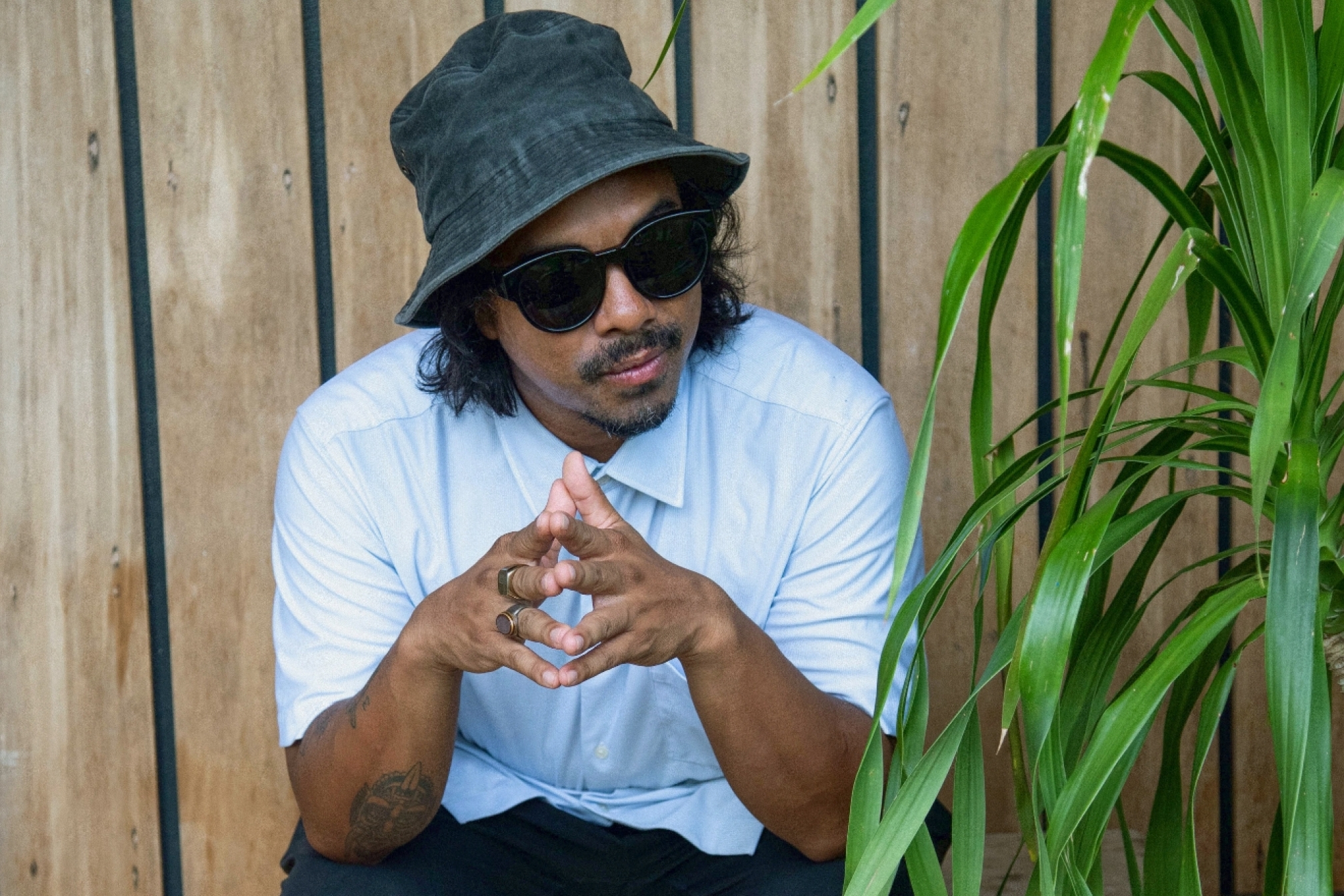 Features
Features
Free the Robots manifests his musically wandering spirit into the soulful ‘Kaduwa’
Jacob Mendoza chats with the Siargao-based musician on discovering his sound & newfound island home
As seen in the apparently rising popularity of portable work, the current generation seems to be the first of many to shift into this labor paradigm. Remote jobs have started to become the new normal and appropriately so. I mean – if you had the choice to work from a cubicle or the beach, what beach would you choose?
Seriously though, working in the office just doesn’t make sense anymore if your job can just be done online. Remote work conserves energy and skips traffic. Although there are some exceptions to the case, such as those caused by toxic work communities, remote work is sensibly functional. One of the professions that believe this system majorly are none other than musicians. People who create music, especially the electronic kind, really get the value in moving around and traveling freely, letting the fruit of their art take them to where they want and need to be.
Through the experiences and lessons that traveling provides, the world can be the ultimate instrument that allows the musician to evolve (into) their music. And this ethos can be perfectly encapsulated by electronic music producer, Free the Robots.
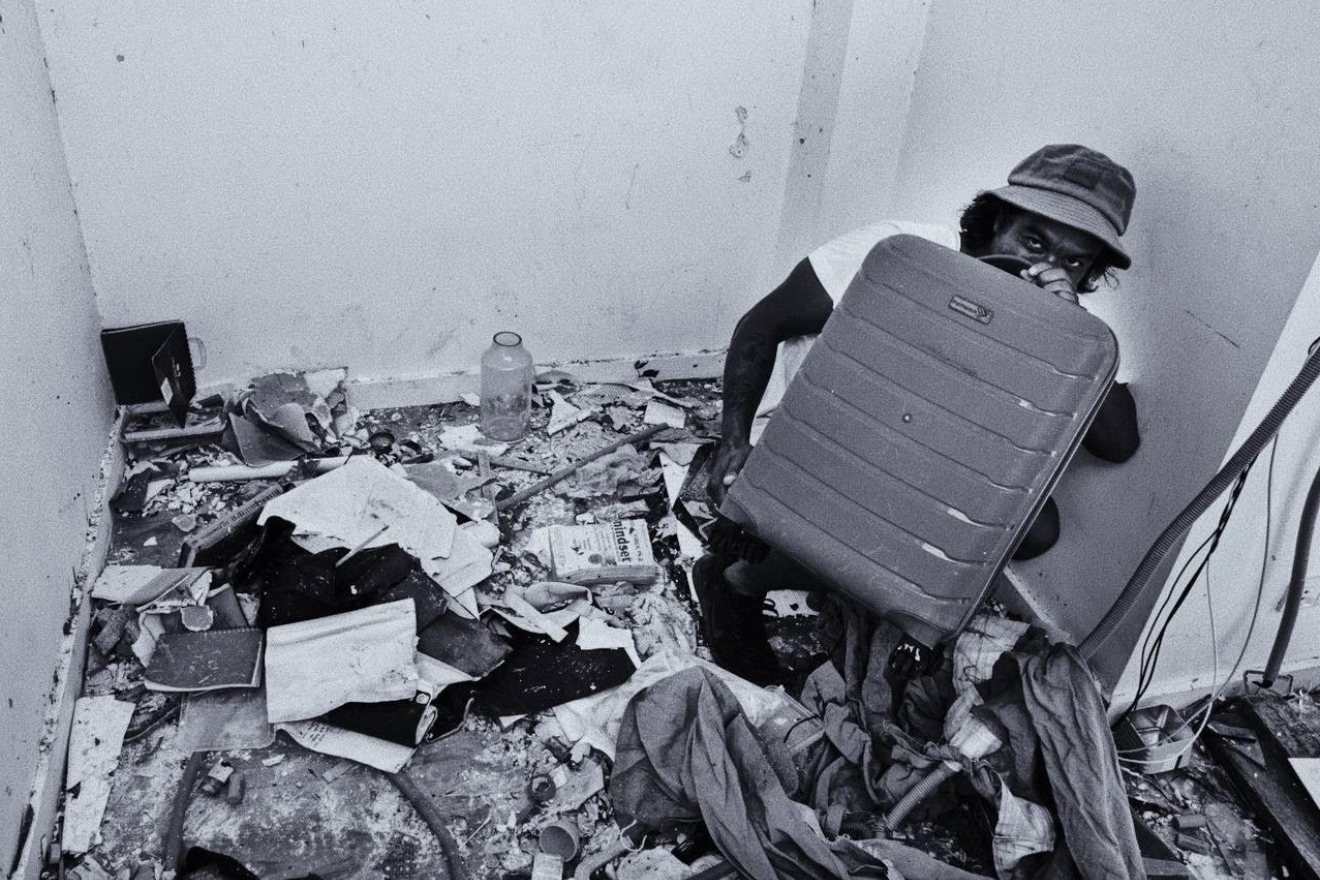
Ever since his early teens, Chris Alfaro or Free the Robots (FTR) has always had a sonic curiosity and experimented with turntables, tape decks, portable recorders, and ‘everything he could possibly get his hands on.’ When he discovered that computer-based recording was possible, he started to take music seriously which gave birth to Free the Robots. Coined on shrooms while he was watching an old 50s Sci-Fi movie, Free the Robots became the glitchy and soul-sampled musical project of Chris Alfaro – with his first album release in 2005 as seen in The Prototype. Since then, Alfaro has been developing his music with improved skills and technology yet still seeing a consistently unique sonic texture and character.
“The music just comes out the way it does,” Alfaro describes how his past discography affects his current style. “It’s all interconnected.” Chris Alfaro is Free the Robots. He mentions that he developed FTR wholeheartedly with no strings attached, avoiding a 9-5 job as much as possible. “One of those things was being an extra in music videos such as Avril Lavigne’s Sk8er Boi.”
Having created music for over 20 years mainly in the conventional comfort of a studio or his house, Alfaro had the desire to “evolve with different environments to see where his moods would go”. He packed up some essentials to work remotely away from his Los Angeles home. “I felt like the limitations of a portable studio, getting out of my comfort zone, sparked different ideas and a different approach entirely. While away from LA, my studio became the city, the cafe, or the beach itself,” says Alfaro. “Currently, I’m in Siargao.”
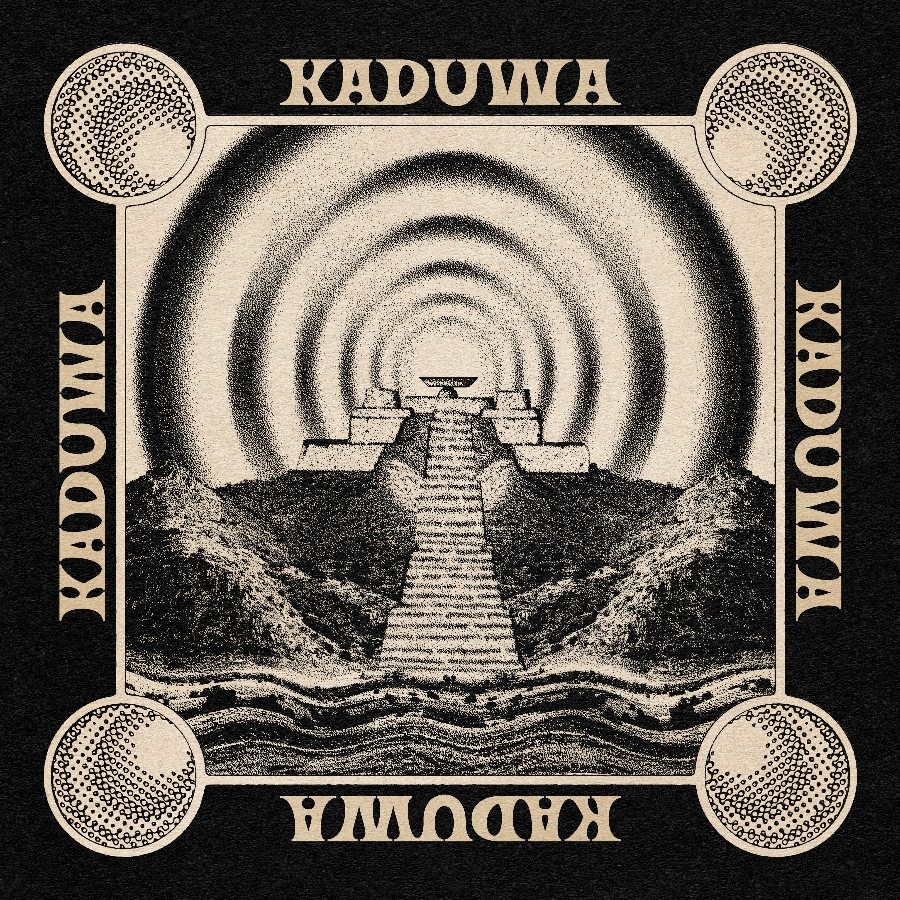
Imparted in the form of an album, ‘Kaduwa’ is Alfaro’s most recent manifestation of his musical journey which eventually led him to live on the majestic Philippine island known as Siargao. Free the Robots’ latest album is a collection of his experiences in the past seven years translated into electronic, jazz-centric and sample-based beats with sublime tinges of psych, rock, house, and hip-hop. And of course, his music is still reminiscent of the hip-hop adjacent leftfield electronic L.A. beat scene he grew up in.
“‘Kaduwa’ is a record that represents my personal transition as a wanderer. It is the musical representation of all the experiences I had throughout the past 7 years living, as a stranger in strange places,” Alfaro reveals. “I spent a good amount of my time alone, in places where I couldn't speak the language. Wandering unknown streets in solitude, spending a lot of time in my own head is what drove me to write this record. I didn't want anything current to affect where I would go with it, so for a good portion of the creative process, I pretty much detached from familiarity and the scene.” Being of Filipino descent, Alfaro found his way, to no surprise, back to his ancestral nation.
“‘Kaduwa’ is the word for “the soul” from the Isneg people (Cordillera / Northern Luzon). I was able to trace a good part of my lineage to this area and have been on this whole, back-to-my-roots trip since the creation of the ‘Datu’ album,” explains Alfaro. “This is partly the reason I’m still here in the Philippines.” Call it fate, Alfaro was forced by the pandemic to reside in the archipelago. Starting in 2020, Siargao became his island home that provided him with immaculate vibes, heartwarming inspiration and friends that became his family. Along with DJ Jay Ru and artist Chichimonsta, Free the Robots even launched Alima Worldwide – a surf-centric music & arts community/brand.
“Alima served as my headquarters for the final sessions of ‘Kaduwa’. The peaceful vibe of my barangay; the fact that it is far but close enough to the activity of General Luna kept my sessions flowing without much distraction. Also my studio throughout the pandemic portion was limited. With less, I was able to feel more, adapting to focus on the pure essentials as my drive to complete the album.”
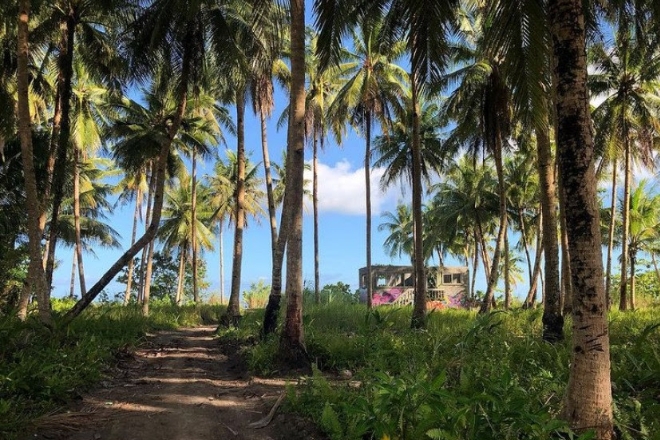
Known as Tito (“uncle” in Tagalog) Chris in Siargao, he expresses his love for his newfound island home – “One of the best decisions in my life was to move here. After a lifetime of wandering in a constant hustle, I’ve finally found my peace. Life is simple on the island. I surf, chill, make music, continue work with my company back home, and DJ at local spots whenever I want to. You really don’t need much out here.”
Recognized by TIME as one of the world’s greatest places to explore in 2021, Siargao is a teardrop-shaped set of islands in Mindanao, the southern part of the Philippines. The islands are known for their magnificent beaches, amazing surf spots, and heartwarming locals. On December 16 of last year, Siargao was struck by typhoon Odette (Rai) which ravaged the place, knocked down its lush coconut trees, and destroyed homes. However unfortunate this natural disaster was, this didn’t stop the spirit of community in the island.
Different organizations such as SEA Movement and Save Siargao helped the islands and its people to rehabilitate their homes and get their lives back to normal. With Siargao being a true home for him, Tito Chris was also clearly moved to help out his neighbors with Rescue Siargao – a Lokal Lab partnership organization that helped supply shelter and water through art-based fundraising. “Life has been good, after a rough start to the year. My main focus took a drastic turn after Typhoon Odette, but recent months have seen major progress. The rebuild has been intense, expensive but amazingly fast. I feel like the island is pretty much back,” says Tito Chris who now seems stoked after a cosmic wipeout.
And just like riding a wave, ‘Kaduwa’ was created with an intuitive approach to it. “I don’t really think much of recording sessions anymore. They just happen when they need to happen. It was meant to vibe off pure life experience through travels and adapting to different ways of living. Most of the time I was just being and jabbing at it when I felt it,” Tito Chris remarks. “At this point, music is like playing video games. I don’t take it so seriously; too much pressure can distort the creative process. Sometimes it hits, and sometimes I scrap hours of work because I don't feel it.” With a tendency to use Reason and take notes from jazz legends such as Alice Coltrane, Free the Robots has no ‘set format’ when creating music.
“Sometimes it starts with just improvisation and hitting the record button. Then I would sample myself and build from there. Other times I'd start with drums and spend hours on sound design around those drums.” While Tito Chris communicates his music with electronic machine language, his creative approach seems to be truly rooted in jazz and hip-hop. With ‘Kaduwa’, he liberates us with music through the glitching of genres and journeying of sound. The latest creation of Free the Robots is a reminder and modern testament that jazz is still alive and that there truly is soul in electronic music.
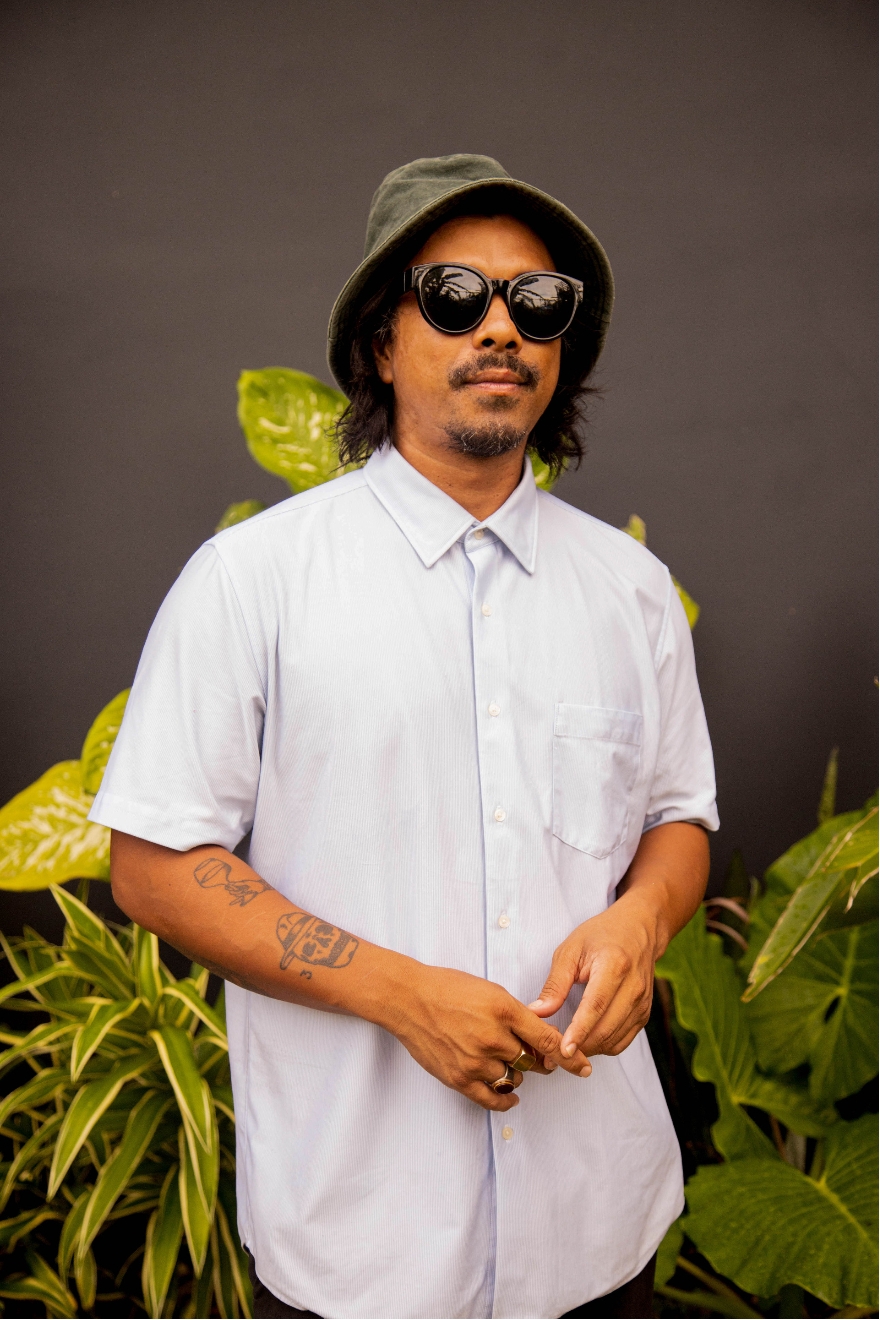
What are those ‘essentials’ that you packed?
A simple iRig controller until I upgraded to a Novation Launch keyboard. Also have my portable PT-01 Numark 7” turntable.
What are touring memories you’ve had?
If you really want to delve into through images, you can search the hashtag #FTRtours on IG. There’s really too many memories to name specifics. I have been actively touring for 10 + years until the pandemic hit, and it’s just a big blur of experience at this point. I guess the overall feeling of even being able to play, along with friends on the world stage for interested fans was always just a blessing I never really thought about.
Any notes you wanna say about ‘Kaduwa’?
There are so many different moods that this album hits but my current vibes post chaos of Odette would be along the lines of Outta Sight, Spaceways, and Flowers. The vinyl version of ‘Kaduwa’ will include the lost tapes of my very first recordings from high school in 1999.
Favourite surf spot?
Pesangan forever if i'm in Siargao.
Favourite bars / places in Siargao?
Manu is home now. It’s also the gateway to Malinao where I reside.
Which tracks were created in Barcelona? How long were you there?
The only track that made it on the album from the 30 + Barcelona sessions was “Machine Language.” I was there for 3 months, and those sessions started what were actually the birth of ‘Kaduwa’ to be.
How has surfing or Siargao played in influencing you, your music or ‘Kaduwa’?
Surfing pretty much uses the same brain muscles as being in flow with music. A lot of what I do is improvisation and staying in the moment. Both activities, though different, tend to fuel each other and create the same feeling.
What is jazz to you? What is electronic music to you?
Jazz is pure freedom. I learned a lot from my constant years collecting Jazz records; listening to how far musicians were able to take it. There are so many levels of jazz from bebop, to spiritual all of which inspire my overall vibe.
Electronic music is more about the sonics of sound and how the music can make the body feel. Whether it's how the bass hits, the subtle details of rhythms, or the choice/ sound of synthesis, all join to unite to either make you move or vibrate.
Messages for upcoming and fellow musicians?
Don’t worry about instant gratification of fast hype or media attention. With so much pressure to compare yourself to others, and what the scene is doing, I would say just take yourself out of the game and completely do your own thing. As a digger of rare records, who is constantly on a search, I’ve learned that music I need to hear will eventually find me. If you are sitting on something great, put it out there! As long as what you make is shared with the world, let the world catch up to you when it needs to.
What’s next for Free the Robots?
More music had been worked on during the pandemic to be released, and more music post-pandemic to be worked on.
Help out Siargao, Tito Chris’ island home, by donating to and sharing about Lokal Lab and Rescue Siargao.
Listen to ‘Kaduwa’ now on major streaming platforms and purchase it here to support Free the Robots.
Jacob Mendoza is a freelance writer for Mixmag Asia, follow him on Instagram.


